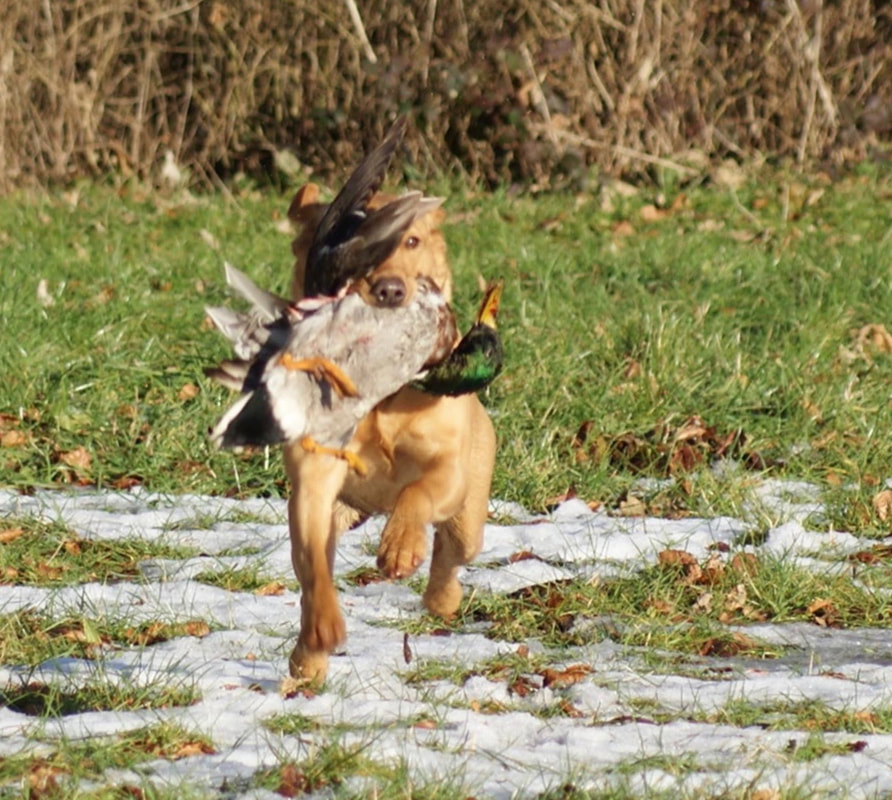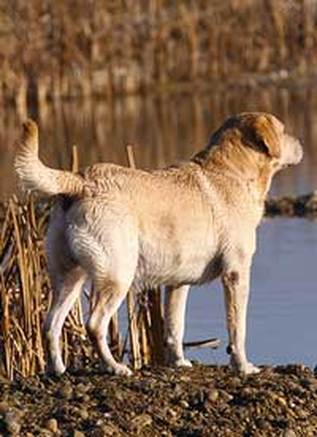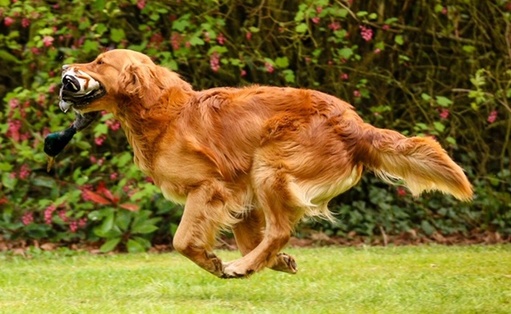RETRIEVERS
|
2024 Field Trials TBC
Schedule:
Entry form: Standing Instructions: Click here BWWGS Club rules: Click here Code of Best Practice for Retriever FT Competitors: Click here Risk Assessment: Click here
|
Before entering a Field Trial please familiarize yourself with Kennel Club J Rules and Regulations for Field Trials, the BWWGS Standing Instructions and our Risk Assessment.
There are eight breeds classified by the Kennel Club as Retrievers: Chesapeake Bay; Curly Coated; Flat Coated; Golden; Irish Water Spaniel, Labrador and Nova Scotia Duck Tolling Retrievers. Many are still active in Working Tests and the Field Trials, but, Labradors are by far the most numerous and successful. The Golden Retriever is next and the Flat Coated Retriever is sadly rarely seen in Open Trials these days. With their air scenting ability and excellent noses, Flatcoats were once the main stay of the shooting field and I have seen them work very well in Sweden where they shoot mostly in the forest where the breed has been developed for this purpose and is still very popular.
Golden Retrievers originated in Scotland. Bred by the Earl of Tweedmouth at Guisachan, they are still favoured by some gamekeepers in Scotland. Like the Flatcoat, they also have this clever air scenting ability and in certain conditions will find game more easily than the Labrador.
However it is the Labrador with its shorter coat and easy temperament that has become the most common shooting companion. These were originally bred by the Duke of Buccleuch from dogs brought over from Newfoundland by French fishermen. The breed was called Labrador because there was already a breed called Newfoundland.
It was perhaps poignant that the last 3 day Retriever Championship was held at Drumlanrig Castle on the Queensbury Estate, seat of the Dukes of Buccleuch, in Dec.2015, as it was here that the first Three Day Retriever Championship was held many years ago. The original Buccleuch Labrador line had died out but the present Duke, very fortunately for us, is a great supporter of our sport and has therefore commissioned David Lisset to breed back as closely as possible to the original line. David now runs several dogs with the Buccleuch affix.
The Bristol & West Working Gundog Club runs three Trials a year: A Qualifying Two Day Open and two Novice Trials. We have also run Novice and Puppy Working Tests as these seem to be where the greatest demand for Tests is.
For further information about anything relating to retriever breeding, training or competing, please contact our Field Trial Secretary or any member of the Retriever Committee.
Golden Retrievers originated in Scotland. Bred by the Earl of Tweedmouth at Guisachan, they are still favoured by some gamekeepers in Scotland. Like the Flatcoat, they also have this clever air scenting ability and in certain conditions will find game more easily than the Labrador.
However it is the Labrador with its shorter coat and easy temperament that has become the most common shooting companion. These were originally bred by the Duke of Buccleuch from dogs brought over from Newfoundland by French fishermen. The breed was called Labrador because there was already a breed called Newfoundland.
It was perhaps poignant that the last 3 day Retriever Championship was held at Drumlanrig Castle on the Queensbury Estate, seat of the Dukes of Buccleuch, in Dec.2015, as it was here that the first Three Day Retriever Championship was held many years ago. The original Buccleuch Labrador line had died out but the present Duke, very fortunately for us, is a great supporter of our sport and has therefore commissioned David Lisset to breed back as closely as possible to the original line. David now runs several dogs with the Buccleuch affix.
The Bristol & West Working Gundog Club runs three Trials a year: A Qualifying Two Day Open and two Novice Trials. We have also run Novice and Puppy Working Tests as these seem to be where the greatest demand for Tests is.
For further information about anything relating to retriever breeding, training or competing, please contact our Field Trial Secretary or any member of the Retriever Committee.



